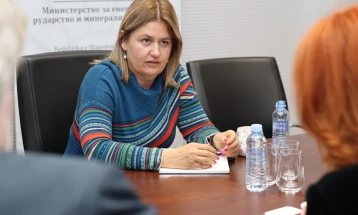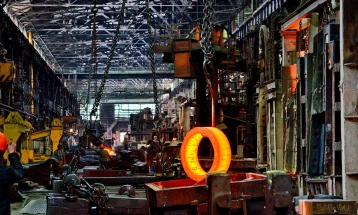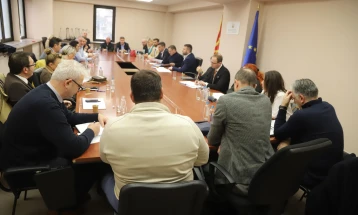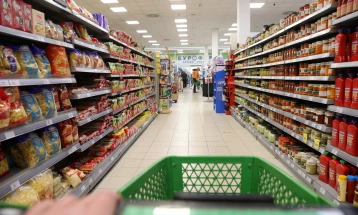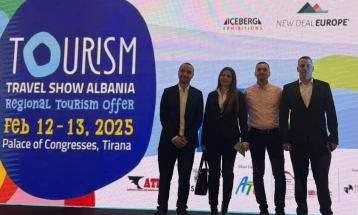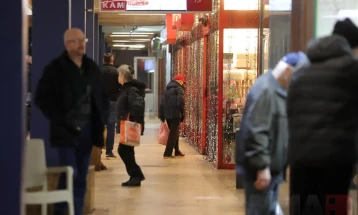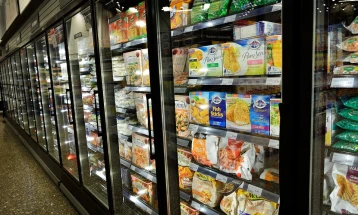Lack of qualified workforce key issue facing foreign investors: survey
- 38 percent of foreign investors in the country reported a higher volume of work in 2024, while 62 percent lower. As many as 51 percent of them faced a shortage of qualified workforce, while 49 percent had increased operational expenses which they noted as a problem, show the results of a survey on foreign direct investments for 2024 implemented by the Economic Chamber’s Foreign Investors Council.
- Post By Angel Dimoski
- 16:26, 12 shkurt, 2025
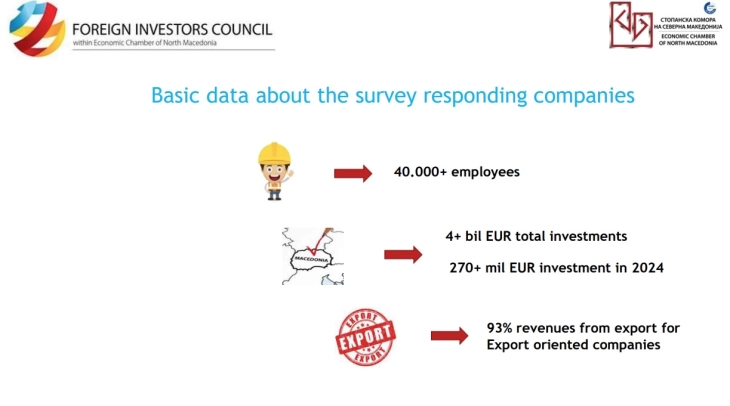
Skopje, 12 February 2025 (MIA) - 38 percent of foreign investors in the country reported a higher volume of work in 2024, while 62 percent lower. As many as 51 percent of them faced a shortage of qualified workforce, while 49 percent had increased operational expenses which they noted as a problem, show the results of a survey on foreign direct investments for 2024 implemented by the Economic Chamber’s Foreign Investors Council.
“Other problems noted are the bureaucracy and inappropriate action by the institutions, legal insecurity and the frequent changes in business regulations, and prominent corruption and issues with the judiciary which is noted as the fifth-biggest problem they face,” said the President of the Foreign Investors Council, Viktor Mizo.
The lack of workforce was noted as a key problem by 29 percent of respondents, highlighting workers quickly leaving the job after employment and the lack of qualifications. Sixty percent of investors see the competitiveness of the labor market as a problem. As possible solutions they point to improvements in the educational process, a reduction in public administration employees and more staff training.

Out of all surveyed companies, 30 percent said they aren’t satisfied with the existing infrastructure in the country down from 37 percent in 2023, 52 percent are partially satisfied (53 percent in 2023), while 18 percent are satisfied (10 percent in 2023).
A total of 49 percent of respondents said they are currently receiving or are in the process of receiving state aid, while 36 percent of companies complained that the payment of state aid is late. Ninety percent of companies believe the rules for receiving state aid are not clear enough.
Forty percent of surveyed companies see improvements in the educational process and the harmonization of customs duties on the imports of raw materials from third countries with the duties in the European Union as key for successful work in 2025.
“Customs duties in our country are between 10 and 15 percent, while in the EU they are usually between 0 and 2.7 percent. This creates a significant discrepancy when it comes to things we import that will be a part of the final product which we then export. So, if we compare this with any other EU country or with Türkiye and Morocco which have a customs union with the EU, we aren’t competitive,” Mizo said.

Out of all surveyed companies, 48 percent said they would invest in the country again for the first time, 30 percent don’t know if they would do so, while 22 percent said they wouldn’t.
The survey on the conditions for business and the investment climate in the country in 2024 was carried out in 50 companies, which have foreign capital and employ over 40.000 workers, in the period between November 24, 2024, and January 20, 2025.
The companies surveyed have invested over EUR 4 billion in the country so far. Most of them (51 percent) are based in the Skopje region. Three quarters of them come from the manufacturing sector, while the rest are from the sector of trade and services. Most of them, 80 percent, work in the regional and global market, while only 20 percent work in the domestic market.
Photo: MIA/Screenshot
